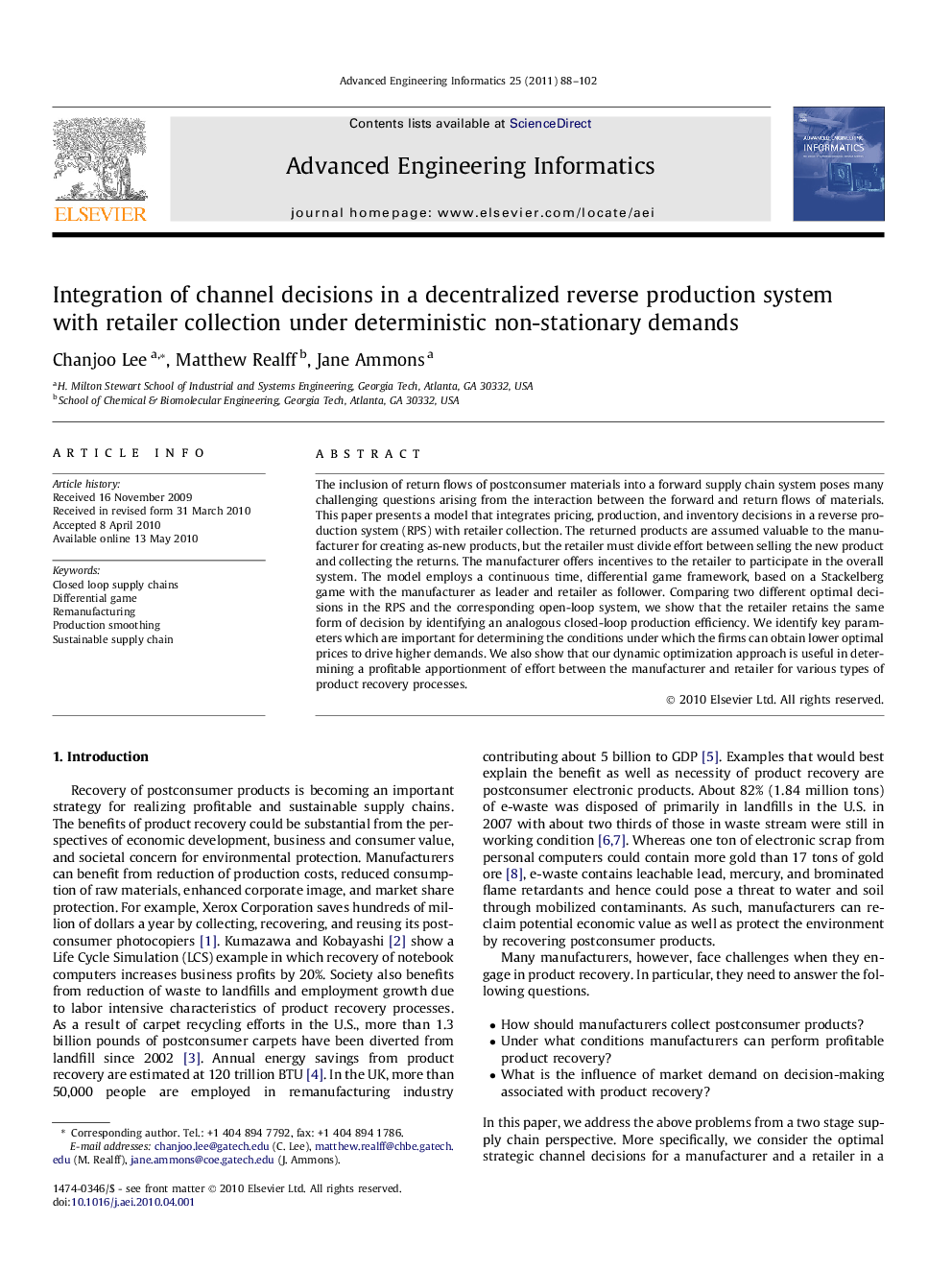| Article ID | Journal | Published Year | Pages | File Type |
|---|---|---|---|---|
| 242367 | Advanced Engineering Informatics | 2011 | 15 Pages |
The inclusion of return flows of postconsumer materials into a forward supply chain system poses many challenging questions arising from the interaction between the forward and return flows of materials. This paper presents a model that integrates pricing, production, and inventory decisions in a reverse production system (RPS) with retailer collection. The returned products are assumed valuable to the manufacturer for creating as-new products, but the retailer must divide effort between selling the new product and collecting the returns. The manufacturer offers incentives to the retailer to participate in the overall system. The model employs a continuous time, differential game framework, based on a Stackelberg game with the manufacturer as leader and retailer as follower. Comparing two different optimal decisions in the RPS and the corresponding open-loop system, we show that the retailer retains the same form of decision by identifying an analogous closed-loop production efficiency. We identify key parameters which are important for determining the conditions under which the firms can obtain lower optimal prices to drive higher demands. We also show that our dynamic optimization approach is useful in determining a profitable apportionment of effort between the manufacturer and retailer for various types of product recovery processes.
